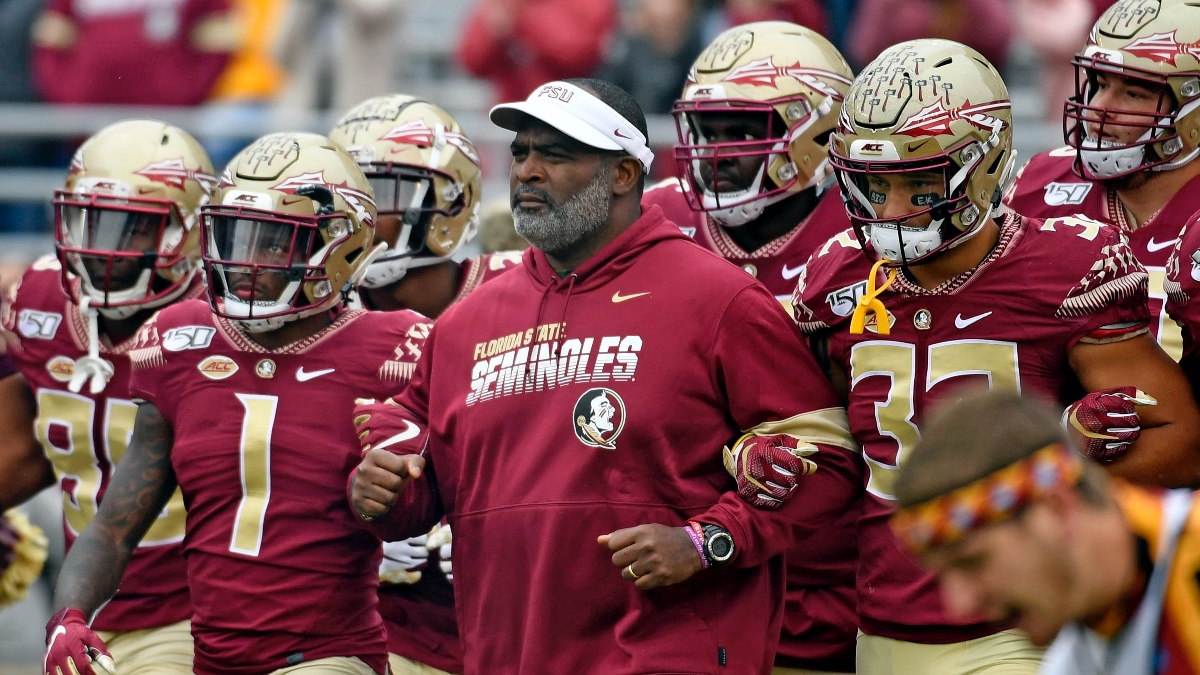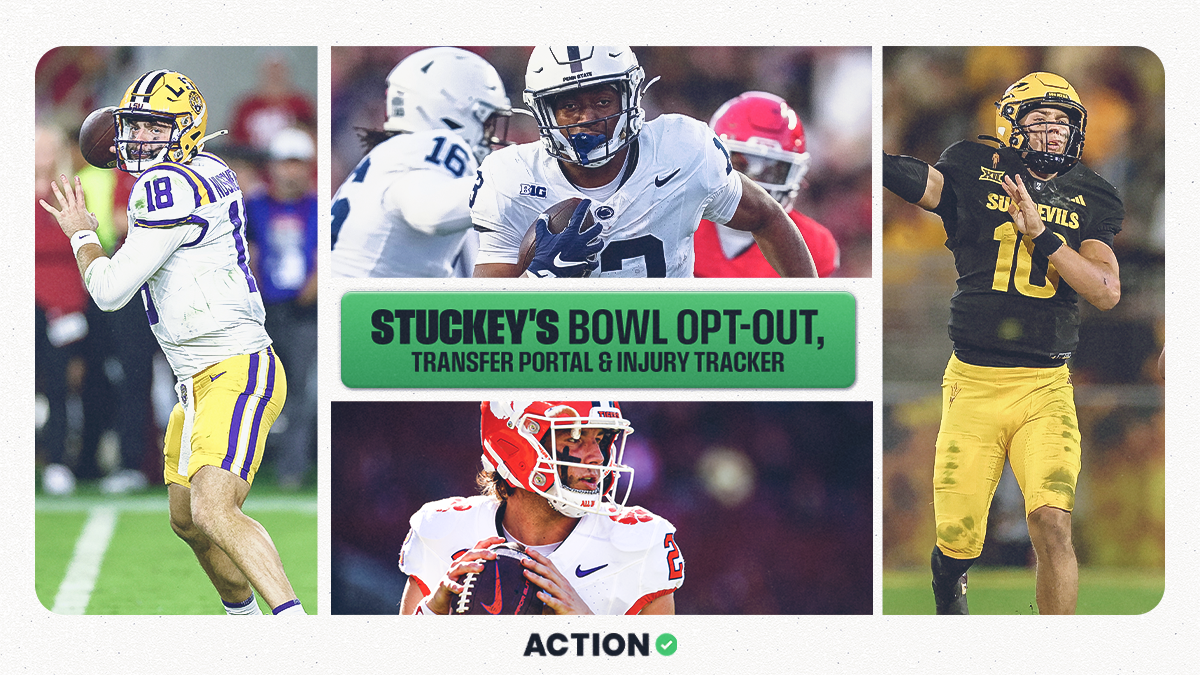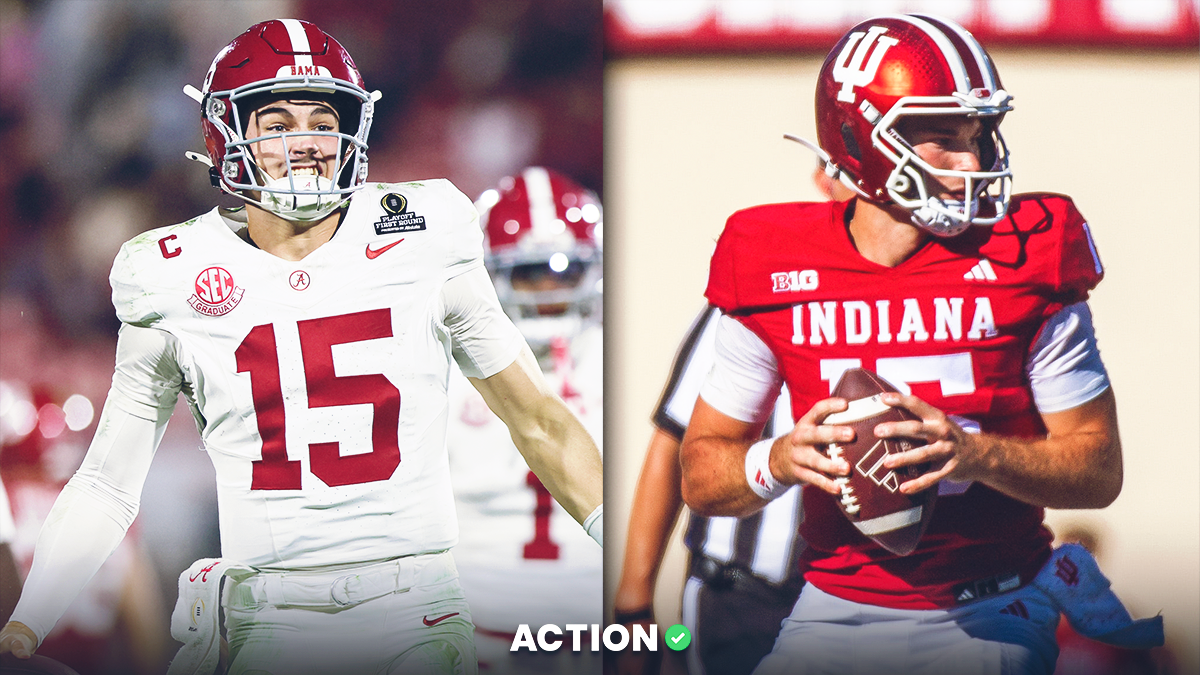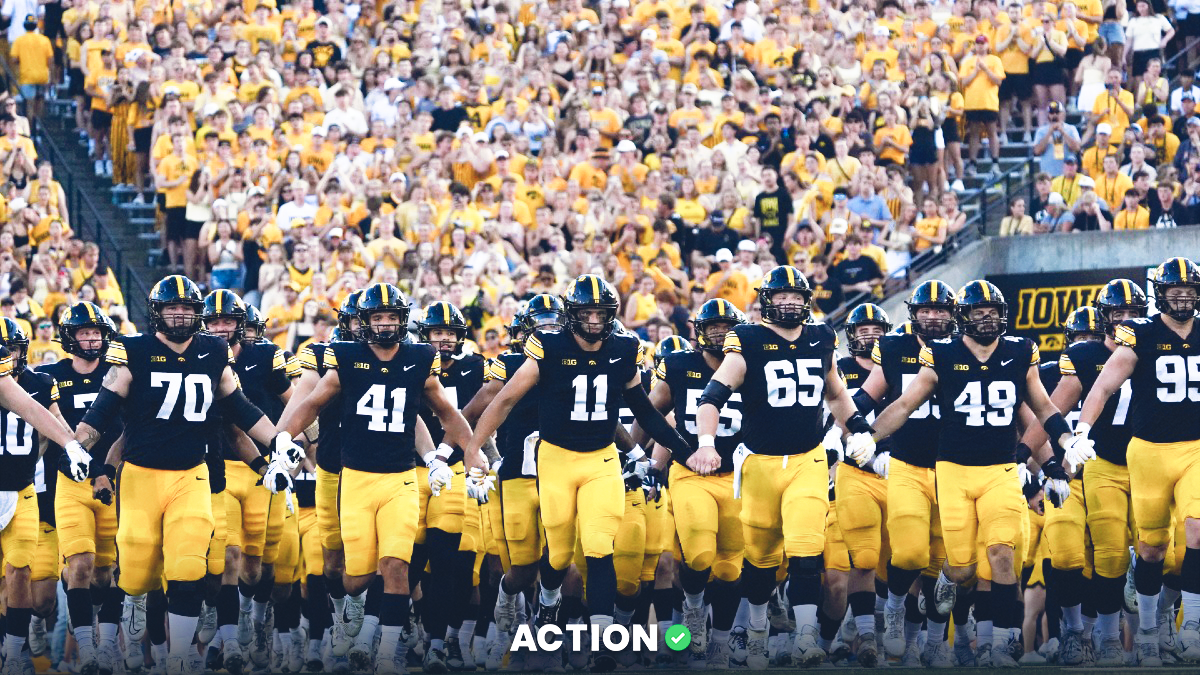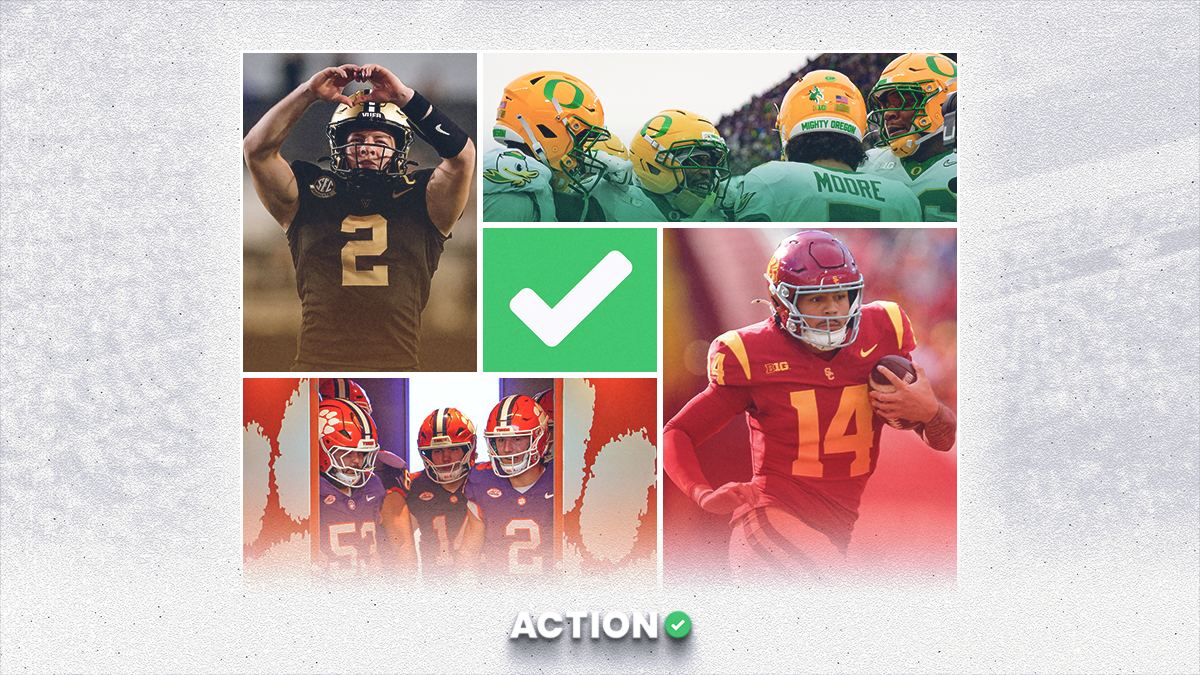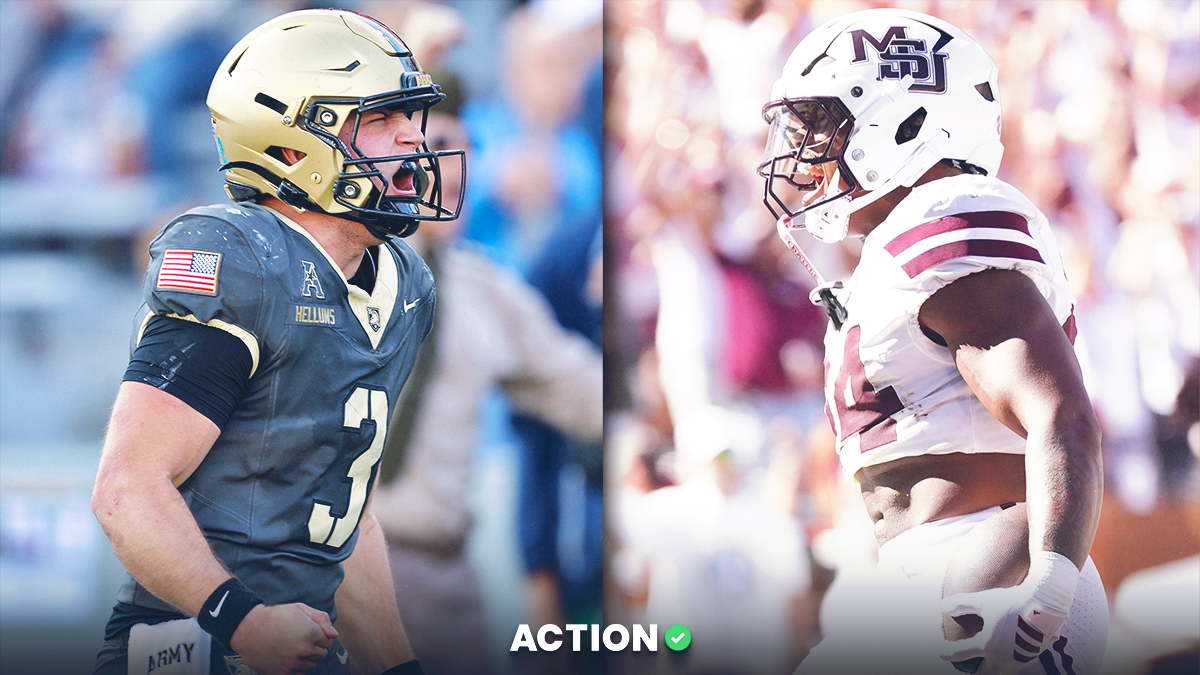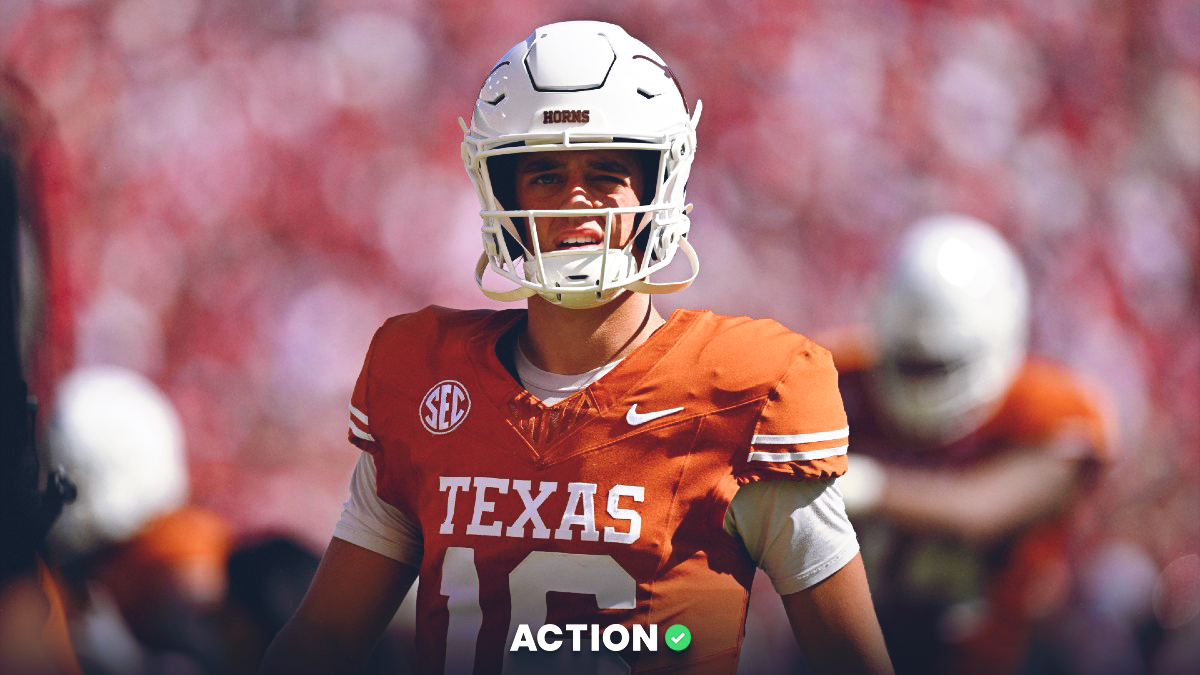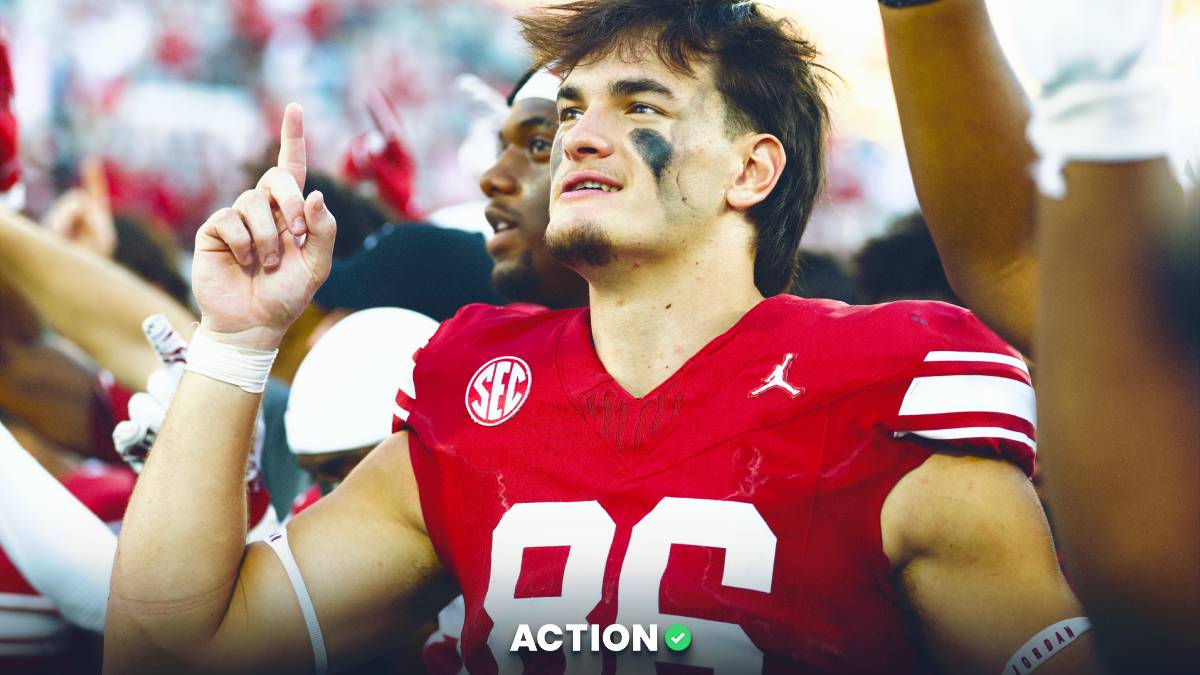- Odell Haggins, Glenn Spencer and Rich Gunnell will serve as interim coaches in college football bowl games over the next few weeks.
- Using Bet Labs, we analyze how teams have performed in bowl games with an interim coach.
Florida State fired head coach Willie Taggart following the Seminoles’ 27-10 loss to Miami in Week 10, and installed defensive line coach Odell Haggins as interim head coach.
Haggins led the Noles to two wins in the team’s final three games to become bowl eligible. He will coach the team under the interim tag in the Tony The Tiger Sun Bowl (Dec. 31, 2 p.m. ET, CBS).
Haggins isn’t the only interim coach that will be at the helm during a bowl game. Glenn Spencer will wear the interim tag when Florida Atlantic plays SMU in the Cheribundi Boca Raton Bowl, and Rich Gunnell will command Boston College in the Ticketmaster Birmingham Bowl against No. 21 Cincinnati.
Coaching is a tough job. Coaching under the interim tag, which implies the role is just temporary, is even harder. Last year for example, Ed Foley was the interim coach for Temple in the Walk-On’s Independence Bowl. The Owls were 3.5-point favorites but lost to Duke 56-27.
Was Foley’s performance the exception or the rule? Will there be a drop in performance or will teams rally around their one-and-done coach?
More importantly, what does this mean for bettors?
To analyze the impact these coaching changes, we compiled a list of every interim signal caller that coached a bowl game since 2005. Thanks to Dave Congrove at CollegeFootballPoll.com for the assist on tracking the coaching changes.
There have been 61 bowl games with an interim coach since 2005.
In those games, the replacement coaches are 30-31 straight up (SU) and 29-31-1 (48.3%) against the spread, per Bet Labs.
There isn’t much of an edge betting or fading these teams.
Here are the results broken down by favorites and underdogs:
It is a small sample but interim coaches that are underdogs have underperformed. In bowl games, underdogs win games outright at a much higher rate than they do during the regular season.
During the regular season, underdogs win 24% of games straight up since 2005. In bowl season, the pooches have gone 189-313 (38%) SU.
Why do underdogs with an interim coach perform worse? One theory, if a team is getting points they likely have inferior talent and a coaching change only heightens the disadvantage.
With a small sample size and given the moderate results, history suggests there isn’t much of an edge to be gained by targeting bowl games with an interim coach.


